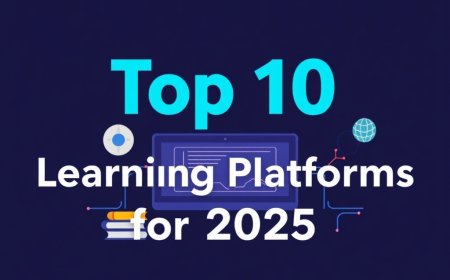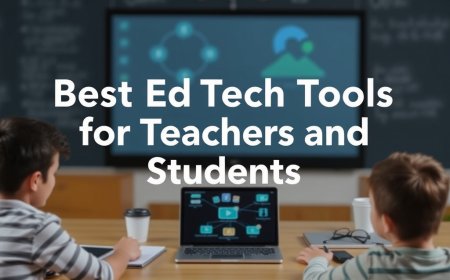How AI is Transforming the EdTech Industry in 2025

The education technology (EdTech) industry has been rapidly evolving over the past decade, with the integration of artificial intelligence (AI) being a major driving force behind this transformation. As we look ahead to 2025, it's clear that AI will continue to play a vital role in shaping the EdTech landscape. In this article, we'll explore the ways in which AI is transforming the EdTech industry and what this means for the future of education.
One of the most significant ways in which AI is impacting EdTech is through the development of personalized learning platforms. These platforms use AI algorithms to analyze student data and create customized learning plans tailored to each individual student's needs and abilities. This approach has been shown to be highly effective in improving student outcomes, as it allows teachers to target specific areas where students need extra support.
Another area where AI is making a significant impact is in the development of intelligent tutoring systems. These systems use AI-powered chatbots to provide one-on-one support to students, offering real-time feedback and guidance as they work through complex problems. This not only helps to improve student understanding but also frees up teachers to focus on more high-level tasks.
AI is also being used to enhance the accessibility of education, particularly for students with disabilities. For example, AI-powered tools can be used to provide real-time captioning and transcription services, making it easier for students who are deaf or hard of hearing to follow along with lectures. Similarly, AI-powered tools can be used to provide audio descriptions of visual content, making it easier for students who are blind or have low vision to access educational materials.
In addition to these applications, AI is also being used to improve the efficiency and effectiveness of educational institutions. For example, AI-powered tools can be used to automate routine administrative tasks, such as grading and data entry, freeing up staff to focus on more strategic tasks. AI can also be used to analyze large datasets to identify trends and patterns, helping educators to make more informed decisions about curriculum design and instructional strategies.
As we look ahead to 2025, it's clear that AI will continue to play a major role in shaping the EdTech industry. With the potential to improve student outcomes, enhance accessibility, and increase efficiency, AI is set to revolutionize the way we learn and teach. As such, it's essential that educators, policymakers, and EdTech companies continue to invest in the development and implementation of AI-powered solutions, ensuring that the benefits of this technology are realized across the education sector.
Furthermore, the integration of AI in EdTech is not just limited to the classroom. AI-powered tools are also being used to support teacher professional development, providing educators with personalized coaching and feedback to help them improve their teaching practices. This not only helps to improve teacher confidence and competence but also ensures that students receive the highest quality education possible.
Moreover, AI is also being used to facilitate collaboration and communication between educators, students, and parents. AI-powered tools can be used to provide real-time updates on student progress, helping to keep parents informed and engaged in their child's education. This not only helps to improve parental involvement but also ensures that students receive the support they need to succeed.
In conclusion, the integration of AI in EdTech is transforming the education sector in profound ways. With its potential to improve student outcomes, enhance accessibility, and increase efficiency, AI is set to revolutionize the way we learn and teach. As we look ahead to 2025, it's essential that we continue to invest in the development and implementation of AI-powered solutions, ensuring that the benefits of this technology are realized across the education sector.
To achieve this, educators, policymakers, and EdTech companies must work together to ensure that AI is used in a way that is transparent, equitable, and effective. This will require ongoing investment in teacher professional development, as well as a commitment to ensuring that AI-powered solutions are designed with the needs of all students in mind. By working together, we can harness the power of AI to create a more equitable, effective, and efficient education system, one that provides every student with the opportunity to succeed.
As the EdTech industry continues to evolve, it's likely that we'll see even more innovative applications of AI in the years to come. From virtual and augmented reality to natural language processing and machine learning, the possibilities for AI in EdTech are vast and exciting. By staying at the forefront of these developments, educators and EdTech companies can ensure that they're well-positioned to take advantage of the opportunities that AI presents, and to create a brighter future for students around the world.












